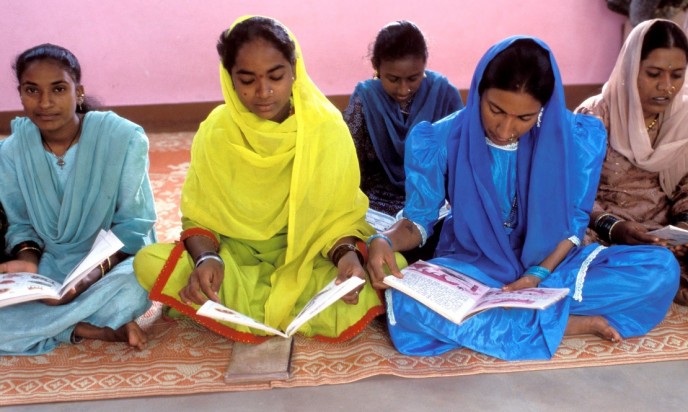

14 per cent of adults worldwide still lack basic literacy skills, UNESCO report finds
adultliteracy.jpg

According to the latest UNESCO Global Education Monitoring Report (GEMR), Inclusion and education – All means all, which is published today, 14 per cent of adults worldwide lack basic reading and writing skills. The reasons for this are varied, with missed early-years schooling, the impact of conflict and instability, migration pathways, and inaccessible quality education in mother-tongue and first languages among them. The report reveals that those excluded from the education system at an early age often remain disadvantaged for the rest of their lives. In addition, fewer than 10 per cent of countries worldwide have laws ensuring full inclusion in education.
The GEMR looks at the progress of over 200 countries in achieving the education targets adopted by UN Member States in the 2030 Agenda for Sustainable Development. It provides an in-depth analysis of key factors that cause the exclusion of learners in education systems, including gender, age, location, poverty, disability, ethnicity, indigeneity, language, religion, migration or displacement status, sexual orientation or gender identity expression, incarceration, beliefs and attitudes.
‘To rise to the challenges of our time, a move towards more inclusive education is imperative,’ said UNESCO Director-General Audrey Azoulay on the occasion of the GEMR launch. ‘Rethinking the future of education is all the more important following the Covid-19 pandemic, which further widened and put the spotlight on inequalities. Failure to act will hinder the progress of societies.’
Although the report does recognize some progress in basic literacy skills, it found that women continue to have lower proficiency in literacy compared to men. In addition, current projections show that the number of adults who have not completed primary school may remain above 10 per cent in Africa until the 2050s, even if universal primary completion is achieved by 2030. These data include new estimates for 72 countries, including 21 countries whose previous national literacy rates were from 2010 or earlier.
Furthermore, results from the Organisation from Economic Co-operation and Development (OECD) Programme for the International Assessment of Adult Competencies (PIAAC) study show that universal primary completion is not a sufficient condition for achieving universal literacy. According to data from 2017, some 51 per cent of adults in Mexico, 71 per cent in Peru and 72 per cent in Ecuador could not perform basic literacy tasks.
The GEMR clearly shows that achieving universal adult literacy remains a challenge; continuous investment is therefore needed to ensure that everyone has the ability to read and write. This is even more true for adults with disabilities: in 25 countries with relevant data, the adult literacy rate for those with any kind of disability is lower than it is for the general adult population, with the gap varying from 5 per cent in Mali to 41 per cent in Indonesia.
The UNESCO Institute for Lifelong Learning (UIL) supports UNESCO Member States to build their capacities in policy development, programme delivery and literacy assessment. It does this by coordinating the work of the Global Alliance for Literacy within the Framework of Lifelong Learning (GAL), providing technical support at country level, tracking progress in literacy development by co-chairing the Global Alliance to Monitor Learning, and providing knowledge on measurement and assessment of literacy developments worldwide.










